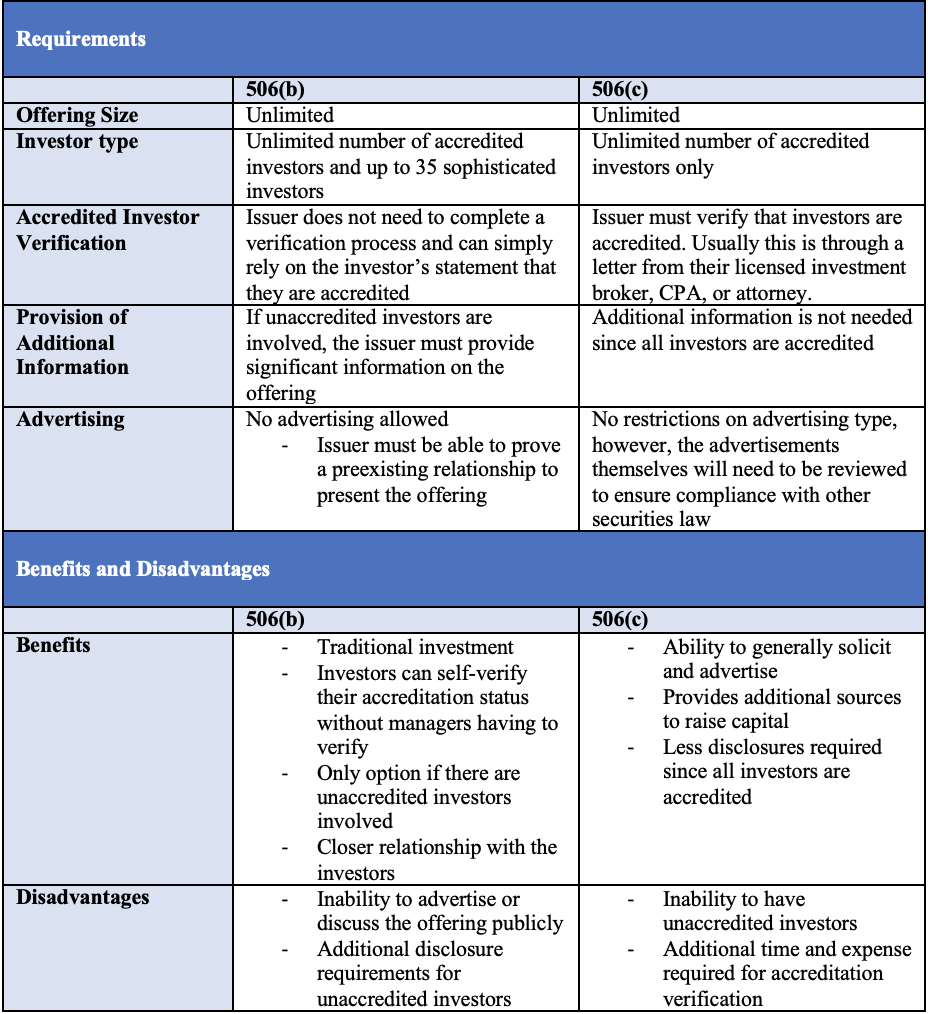The Social Security Administration (SSA) issues Social Security Numbers (SSNs) and cards to U.S. citizens, immigrant visa holders, and certain nonimmigrant visa holders residing in the U.S. with work authorization from the U.S. Department of Homeland Security (DHS). Applying for an SSN is free. SSNs are used for reporting earnings and taxes to the IRS,...
Business Transactions
When raising capital, establishing meaningful relationships with investors is essential for success. For private offerings under Rule 506(b) of Regulation D of the Securities Act, this concept is especially imperative. Rule 506(b) exempts issuers of private offerings from the extensive disclosure requirements in public offerings. Unlike Rule 506(c), which permits general solicitation, Rule 506(b) allows...
At the beginning of the new year, the Corporate Transparency Act (“CTA”) went into effect, burdening 32 million businesses to submit certain beneficial ownership information (“BOI”) in reports filed with the Financial Crimes Enforcement Network (“FinCEN”). You can find a detailed summary of the CTA and BOI reporting requirements here. Many affected parties have voiced...
Feb82024

Effective January 1, 2024, the Corporate Transparency Act (“CTA”) has come into force, bringing with it substantial reporting obligations on small businesses. Given the stringent reporting obligations, tight reporting deadlines, and steep penalties associated with noncompliance, it is critical to be well informed about the new law and take the necessary steps to adhere to...
Jan292024
The Mortgage Bankers Association estimates that nearly $1 trillion in multifamily CRE debt will mature by 2027. An historically large number of multifamily debt maturities is on the horizon, leading many borrowers seeking to extend time on their current loans waiting for better interest rates and loan terms, rather than refinancing their property at a...
On November 23, 2022, The Securities and Exchange Commission (“SEC”) released its Strategic Plan for fiscal years 2022 through 2026, detailing its mission, vision, values, and goals moving forward through the next four years. Three main goals guide the SEC’s plan: (1) protecting the investing public against fraud, manipulation, and misconduct; (2) developing and implementing...
Nov152022
Securities lawyer Chris Barsness talks about the recent collapse of FTX and its exchange and the chapter 11 bankruptcy filing by FTX Trading and issues around regulations. ...
Nov152022

When raising capital in private offerings, issuers often rely on exemptions from registration under Regulation D of the Securities Act of 1993. Two of the most common exemptions are Rule 506(b) and Rule 506(c). While both exemptions allow private issuers to raise capital without registering with the SEC, each exemption has different requirements, limitations, benefits,...